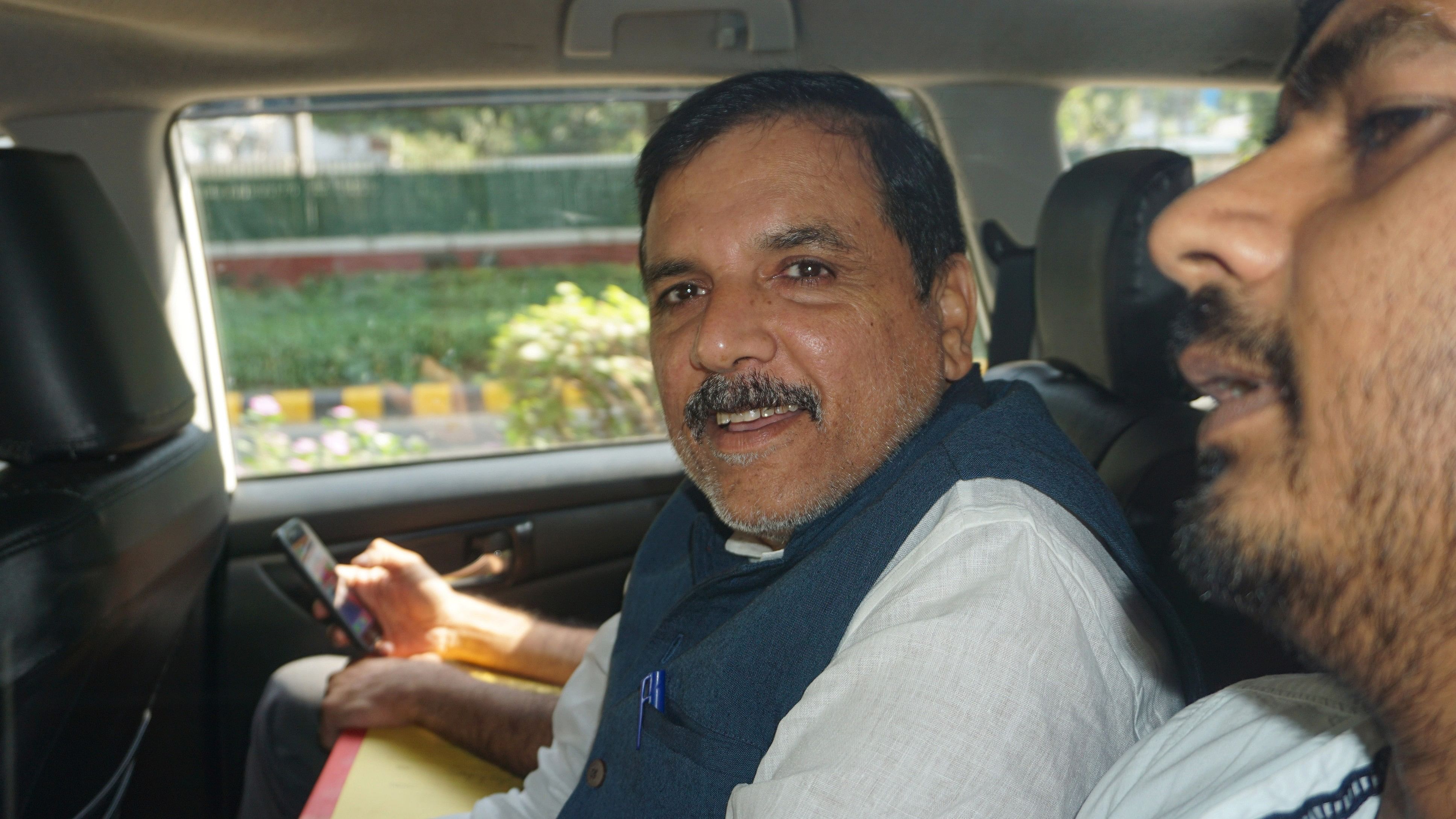
AAP MP Sanjay Singh.
Credit: PTI File Photo
New Delhi: AAP leader Sanjay Singh, arrested by the Enforcement Directorate in a case related to the now-scrapped excise policy for the city, told the Delhi High Court on Tuesday that the law against money laundering cannot become an 'instrument of oppression' as he demanded his release in the matter.
The counsel for the AAP Rajya Sabha member argued that his arrest was illegal, malicious and a 'classic case of perversion of power' and therefore the subsequent trial court order remanding him to the agency's custody should be set aside.
'The (Prevention of Money Laundering) Act cannot become an instrument of abuse... If such leeway is allowed, nobody is safe. This is a classic case of abuse and perversion of power,' senior advocate Vikram Choudhari submitted before Justice Swarana Kanta Sharma.
Singh, who was arrested by the ED on October 4, had moved the high court last week challenging his arrest and remand in the money laundering case related to alleged irregularities in the scrapped Delhi excise policy for 2021-22.
The ED's money laundering case stems from the CBI FIR.
According to the CBI and the ED, irregularities were committed while modifying the Delhi Excise Policy 2021-22 and undue favours were extended to licence holders.
The ED has alleged that Singh played a key role in the formulation and implementation of the policy, which benefited certain liquor manufacturers, wholesalers and retailers, for monetary considerations.
Choudhari on Tuesday contended before the high court that the arrest cannot be sustained as there was non-compliance with the legal provisions. He also said there was no 'necessity' to apprehend the AAP leader with without any prior notice or summons.
'I am a renowned public (figure). I am a mass leader of this country... My arrest is malicious, flouting procedure. There is malice in law and fact,' the senior lawyer said, objecting to Singh's arrest in the case on the basis of a statement made by approver Dinesh Arora.
'There is not a single summons issued to me. On October 4, ED swoops into my house in the morning, carries out search for the entire day... After 13 statements (to ED and CBI), Arora suddenly makes a statement naming me,' he said.
The counsel added that the law mandates ED to record grounds of arrest necessitating the petitioner's arrest, which was not done, and these grounds 'cannot be a mere chanting of the statute'.
It was further said that although the order of arrest mentioned that custodial interrogation was needed to 'unearth' the 'scam', the money laundering law does not permit arrest unless there is reason to believe that a person is guilt.
'In the present case, the grounds of arrest are a formality, empty formality and camouflage,' he stated.
Choudhari also emphasised that until his arrest, Singh was never named in any chargesheet filed by the CBI in the main case and his name was mentioned by ED in one of its chargesheet only as an error.
Post his arrest, the trial court had remanded Singh to the custody of the agency. On October 13, he was sent to judicial custody till October 27.
Earlier, Singh's counsel had argued that arrest of the 'reputed leader' was a 'knee-jerk reaction' as it was done without complying with due process of law and it thus deserved court's 'condemnation' to not only protect his liberty but also set the right precedent.
In spite of a recent Supreme Court holding ED cannot be 'vindictive', the agency continues to 'indulge in what they believe is correct' and making arrests in an 'indiscriminate manner', he had said.
The matter would be heard next on October 19 when the ED is expected make submissions.